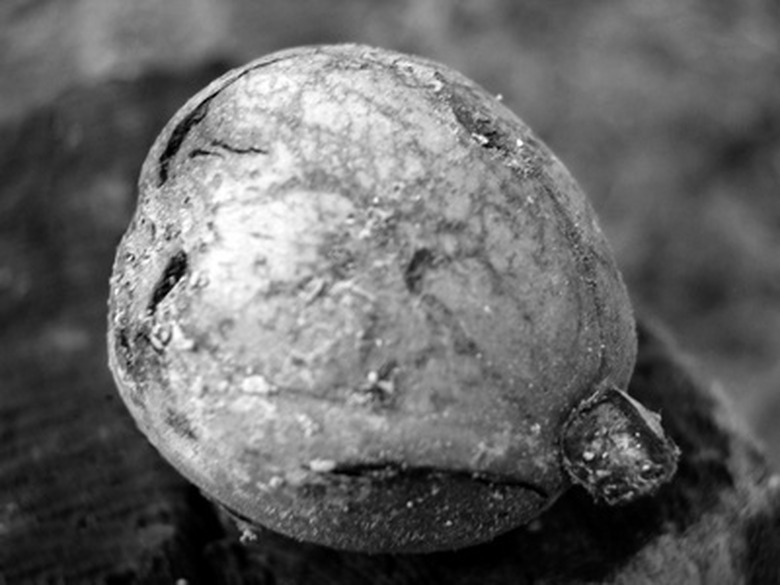How To Dry Black Walnut Hulls For Herbal Tinctures
Things Needed
- Small knife
- Nut cracker
- Hammer
- Hand towel or cheese cloth
- Gloves
- Protective eyewear
- Drying screen
The black walnut is a deciduous flowering tree that grows to heights of 40 feet in the wild. Black walnuts are unfriendly in the garden; a chemical dispersed into the soil called juglone quickly withers and kills struggling plants trying to grow under the tree's canopy.
The same chemical that keeps other plants from growing under the black walnut is the chemical that gives black walnut hulls their medicinal value. Juglone has antiviral, antiparasitic and antibacterial properties and is a fungicide too. Black walnut hull tincture is used internally to treat intestinal parasites and fungal infections.
Externally, a diluted wash made with black walnut hull tincture can treat yeast infections on the skin and ringworm. Always consult your doctor before using herbal medicines or alternative treatments.
- The black walnut is a deciduous flowering tree that grows to heights of 40 feet in the wild.
- Black walnuts are unfriendly in the garden; a chemical dispersed into the soil called juglone quickly withers and kills struggling plants trying to grow under the tree's canopy.
Step 1
Harvest black walnuts when they fall to the ground in the autumn months. Picking the nuts from the tree can damage the branches. Rake the area under the tree in late summer to remove debris and plant material. This will make collecting the fallen nuts easier.
Step 2
Remove the green outside layer using a small knife. Cut around the black walnut and then peel away the sticky green layer. Wear heavy gloves to protect your hands from the dye in the husks. You can also roll the walnut under your foot until the green hull splits open. Under the sticky green layer you will find the hard shell of the walnut hull. This is the part that is made into the herbal tincture.
- Harvest black walnuts when they fall to the ground in the autumn months.
- Cut around the black walnut and then peel away the sticky green layer.
Step 3
Crack the hulls using a nut cracker or a hammer. If you use a hammer, wrap the nut in a cloth before striking. This will prevent the hull pieces from scattering all over your work area. Remove the nut from the inside and set it aside for snacking, baking or storing.
Step 4
Lay the hulls out on a wire-drying screen. You can buy one at your local garden store or make one by stretching a window screen over a simple wooden frame.
Step 5
Place the walnut hulls in a warm dry area. Keep the drying hulls out of direct sunlight.
- Crack the hulls using a nut cracker or a hammer.
- Place the walnut hulls in a warm dry area.
Step 6
Allow the hulls to dry completely; they will turn black when they are completely dry. The average drying time is 2 to 3 weeks but if you live in a humid climate it may take longer.
Tip
Cut the hulls up using a knife or heavy object to crush the hulls. Place the crushed dried hulls in a jar and submerge in vodka for 6 weeks. Strain out the plant matter and you have an herbal tincture.
Warning
The dye in the husk will permanently stain clothing and will color skin. Wear protective clothing and keep workspaces protected with drop cloths. Wear protective eyewear when crushing walnut hulls to protect yourself form sharp flying pieces of the hull. Consult a physician before taking any herbal preparations.
